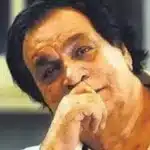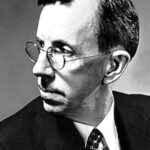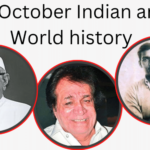31 July in Indian and World History is celebrated, observed, and remembered for various reasons. 31 July is the birth anniversary of Munshi Premchand, Damodar Dharmananda Kosambi, Mohan Lal Sukhadia, and Mumtaz.
31 July is also observed as the death anniversary of Ashutosh Das, Shripad Damodar Satwalekar, and Muhammad Rafi.
Birth Anniversary on 31 July
31 July in Indian history is celebrated as the birth anniversary of the following personalities:
Munshi Premchand (31 July 1880 – 8 October 1936), a considered the novel emperor of India whose era spanned from 1880 to 1936. This period is of great importance in the history of India. India’s freedom struggle passed through new stages in this era. Premchand’s real name was Dhanpat Rai Srivastava. He was a successful writer, patriotic citizen, skilled orator, responsible editor, and sensitive writer. In the first half of the twentieth century, when there were no technical facilities to work in Hindi, there was no other writer except him who could do so much work. He wrote about one and a half dozen novels like Sewa Sadan, Premashram, Rangbhoomi, Nirmala, Gaban, Karmabhoomi, Godan, etc, and more than three hundred stories like Kafan, Poos ki Raat, Panch Parmeshwar, Bade Ghar Ki Beti, Old Kaki, Story of two bullocks, etc. Premchand Was Born on 31 July 1880 in Lemhi Village, Varanasi, Uttar Pradesh.
Damodar Dharmananda Kosambi (31 July 1907 – 29 June 1966), was an Indian scholar, philologist, and mathematician. Apart from mathematics, he has also made an incomparable contribution to the history and culture of India. Damodar Dharmanand jihad served in the ‘Tata Institute of Fundamental Research for sixteen years. He was removed from the institute due to some of his disputes with Homi Bhabha. Damodar Dharmanand Ji has made a special contribution to the field of ancient Indian history and culture. In 1946 he was invited to the ‘Tata Institute of Fundamental Research, where he worked for 16 years. He was Born on 31 July 1907 in Goa.
Mohan Lal Sukhadia (31 July 1916 – 2 February 1982), was a famous politician of Rajasthan. He is also known as the “builder of modern Rajasthan”. Mohan Lal Sukhadia was the Chief Minister of Rajasthan for the longest time. He belonged to a Jain family. His father’s name was Purushottam Lal Sukhadia, who was counted among the best cricketers of Bombay (modern Mumbai) and Saurashtra. Mohan Lal Sukhadia is called the builder of modern Rajasthan. He served as the Chief Minister of Rajasthan for the longest period of 17 years. He was the Chief Minister of Rajasthan from 1954 to 1971. Later he was also the Governor of Karnataka, Andhra Pradesh, and Tamil Nadu. He was Born on 31 July 1916 in Jhalawar, Rajasthan.
Mumtaz is a famous Hindi film actress. The time when Mumtaz, the bubbly, cheerful and naughty, used to spread the magic of her acting on the film screen, at that time everyone was in awe of her performance. When Mumtaz made her Bollywood debut, an actress meant a woman with a shy, gentle and calm character; But Mumtaz changed the whole meaning of being an actress with her naughty looks and bubbly style. Aapki Kasam’, ‘Roti’, ‘Apna Desh’, ‘Khilauna’, and ‘Sachcha Jhootha’ are memorable films of Mumtaz. Mumtaz made her Bollywood debut at the age of 12. In 1990, Mumtaz came in her second innings to try her luck in films. She did the film ‘Aandhiyan’ with Shatrughan Sinha but was unsuccessful. Mumtaz understood that it was not easy for her to compete with new heroines and thought it better to say goodbye to acting. She got many awards including Filmfare Award for Best Actress (1970), Filmfare Lifetime Achievement Award (1996). She was Born on 31 July 1947 in Mumbai India.
Read More: 30 July in Indian and World History
Death Anniversary on 31 July
31 July in Indian history is observed as the death anniversary of the following personalities:
Ashutosh Das (1888 – 31 July 1941), was an Indian freedom fighter and social worker. As soon as the ‘First World War’ ended, on the call of Gandhiji, he left the government job and engaged in the work of upliftment of the rural people. He went to jail several times for taking an active part in the Satyagraha movement. In his student life, he had joined the ‘Anushilan Samiti’. It was from this revolutionary organization that the revolutionary ‘Jugantar Party’ came into existence later. In the meantime, he came in contact with many revolutionaries and made an important contribution to strengthening this organization in his district. He died on 31 July 1941.
Shripad Damodar Satwalekar (19 September 1867 – 31 July 1968), a special contribution to the Indian cultural upliftment of the twentieth century. He was the foremost scholar to study the Vedas. The meaning and meaning of the Vedas were studied and contemplated by Satavalekar Ji, hardly any other Indian has done it. Enriched with national ideas, the Nizam did not like his enlightenment, so he had to leave Hyderabad soon. Shripad Damodar Satavalekar was awarded ‘Padma Bhushan’ by the Government of India in 1968 for his special contribution to the field of literature and education. Satwalekar died on 31 July 1968.
Muhammad Rafi (24 December 1924 – 31 July 1980), was the greatest playback singer of Hindi cinema, has recorded over 25,000 songs in film singing in nearly 40 years. Get it done For the sweetness of his voice and the abundance of range, he had made a different identity among his contemporary singers. He was also known as ‘Shahenshah-e-Tarannum’. At the age of about 15, he accidentally got an opportunity to perform in public, which proved to be a turning point in his life. Among the audience was renowned musician Shyam Sundar, who, impressed by Rafi’s talent, invited him to Bombay (present-day Mumbai) to sing in films. The Government of India honored Rafi with the Padma Shri in 1965. Rafi Sahab was nominated for 23 Filmfare Awards, out of which he received this award 6 times. He died on 31 July 1980.
Read More: 29 July in Indian and World History
Notable events on 31 July in Indian and World History
Some of the Notable events on 31 July in World History are mentioned below:
31 July 1909 – Sariamin Ismail – first female Indonesian novelist to be published in the Dutch East Indies – was born.
31 July 1912 – Milton Friedman, an American economist, and Nobel Prize Laureate was born.
31 July 1918 – Paul D. Boyer, an American biochemist, and Nobel Prize Laureate, was born.
31 July 1940 – The British government hanged Udham Singh, a fierce revolutionary, freedom fighter, and social reformer, in London.
31 July 1944 – Robert C. Merton, an American economist, and Nobel Prize Laureate, was born.
31 July 1948 -The first state transport service in India was established in West Bengal (Calcutta) State Transport Corporation.
31 July 1950 – India and Nepal signed the Treaty of Peace and Friendship on this day.
31 July 1971 – The Apollo-15 astronauts made an electric 6-and-a-half-hour journey.
31 July 1982 – The Soviet Union conducted a nuclear test on this day.
31 July 1909 – Sariamin Ismail – first female Indonesian novelist to be published in the Dutch East Indies – was born.
31 July 1992 – Sitar maestro Pandit Ravi Shankar Magsaysay was honored with the award.
31 July 1993 – India’s first floating maritime museum was inaugurated in Calcutta (now Kolkata).
31 July 1993 – Lola Álvarez Bravo, the first Mexican female photographer and a key figure in the post-revolution Mexican renaissance, died.
31 July 2010 – Billiard instructor Subhash Agrawal was selected for the Dronacharya Award.
31 July 2010 – The 18th century Jantar Mantar of Jaipur was included in the UNESCO World Heritage List by the World Heritage Committee at the 34th International Conference in Brasilia.
31 July 2012 – Pro. Ashok Sen was declared one of the nine winners of the first Yuri Milner Fundamental Physics Prize (Fundamental Physics Prize).
31 July Historical Significance
The date of July 31st holds a rich tapestry of historical events that have shaped the course of human history. On this day, significant occurrences span from ancient times to the modern era. For instance, in 30 BC, the Battle of Alexandria marked a pivotal moment in Roman history, where Mark Antony claimed a fleeting victory over Octavian, leading to the latter’s eventual rule over Egypt. Centuries later, in 1498, Christopher Columbus discovered the island of Trinidad during his third voyage, expanding the horizons of the known world. The date is also marked by the birth of influential figures such as the renowned Indian writer Munshi Premchand in 1880, whose work captured the essence of India’s social fabric. Additionally, July 31st saw the signing of the START I treaty between the United States and USSR in 1991, a significant step towards nuclear disarmament. Each event, whether a battle, discovery, birth, or diplomatic agreement, contributes to the diverse historical significance of July 31st, reflecting the multifaceted nature of our past.
Important Days of 31 July in History
Some of the Notable events on 31 July in History are mentioned below:
- World Ranger Day (International): Celebrated worldwide to honor park rangers who are the protectors of natural parks and cultural heritage sites.
- System Administrator Appreciation Day (United States): A day to show appreciation for the work of sysadmins and other IT workers.
- Martyrdom Day of Shaheed Udham Singh (India): Commemorating the sacrifice of the freedom fighter who was instrumental in India’s struggle for independence.
Observer Voice is the one stop site for National, International news, Editor’s Choice, Art/culture contents, Quotes and much more. We also cover historical contents. Historical contents includes World History, Indian History, and what happened today. The website also covers Entertainment across the India and World.










